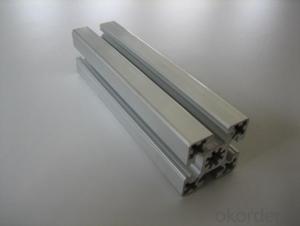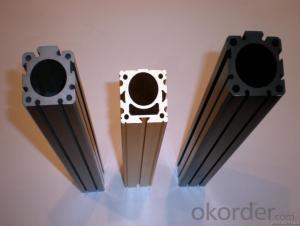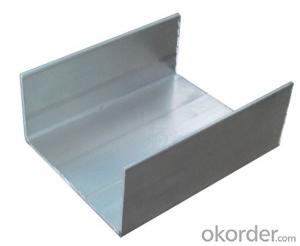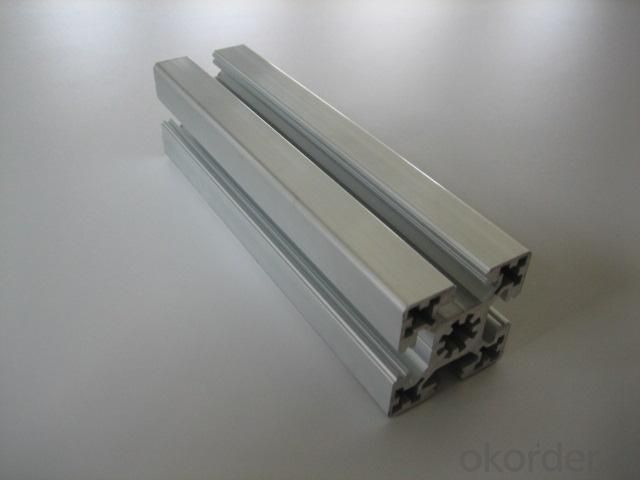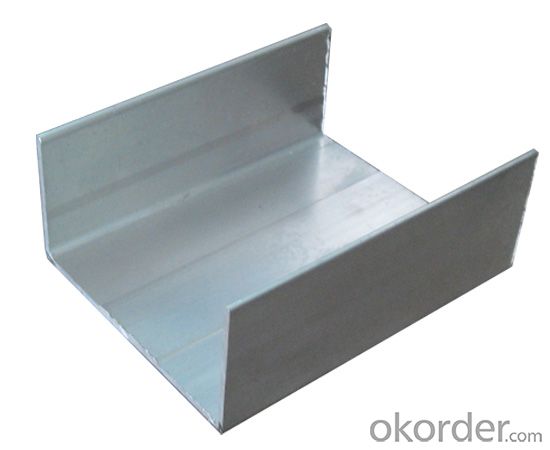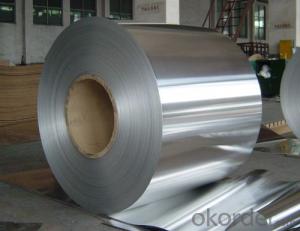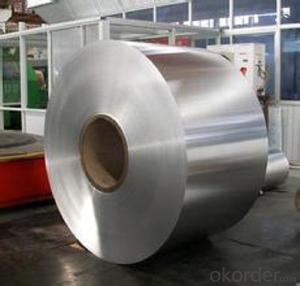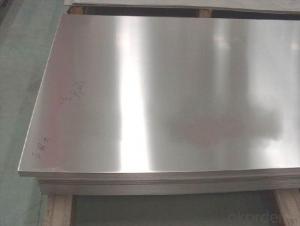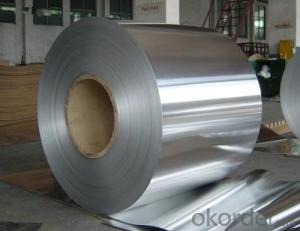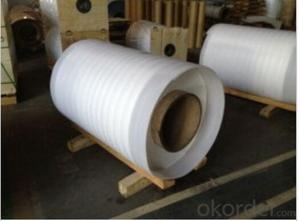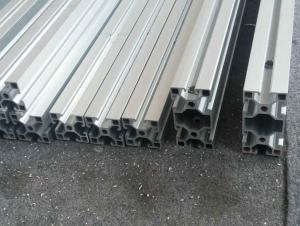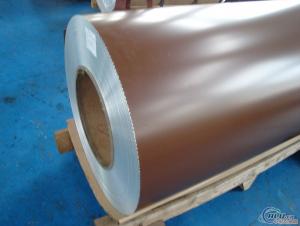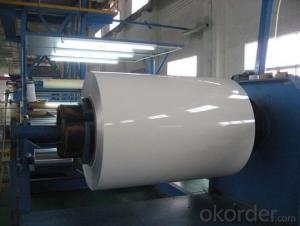Coiled Aluminum Sheet for Customized Closet Door Profiles
- Loading Port:
- Shanghai
- Payment Terms:
- TT OR LC
- Min Order Qty:
- 20 m.t.
- Supply Capability:
- 2000 m.t./month
OKorder Service Pledge
OKorder Financial Service
You Might Also Like
1.Structure of Customized Aluminum Profile for Closet Door Description:
Customized Aluminum Profile for Closet Door (also spelled anodising, particularly in the UK and Australia) is an electrolytic passivation process used to increase the thickness of the natural oxide layer on the surface of metal parts. Anodized aluminium surfaces, for example, are harder than aluminium but have low to moderate wear resistance that can be improved with increasing thickness or by applying suitable sealing substances.
2.Main Features of the Customized Aluminum Profile for Closet Door:
High corrosion-resistance;
weather-resistance;
heat-resistance;
alkali-resistance and impact-resistance properties.
3.Customized Aluminum Profile for Closet Door Images:
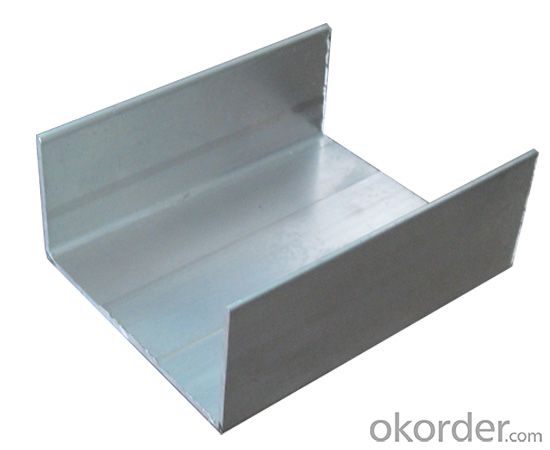
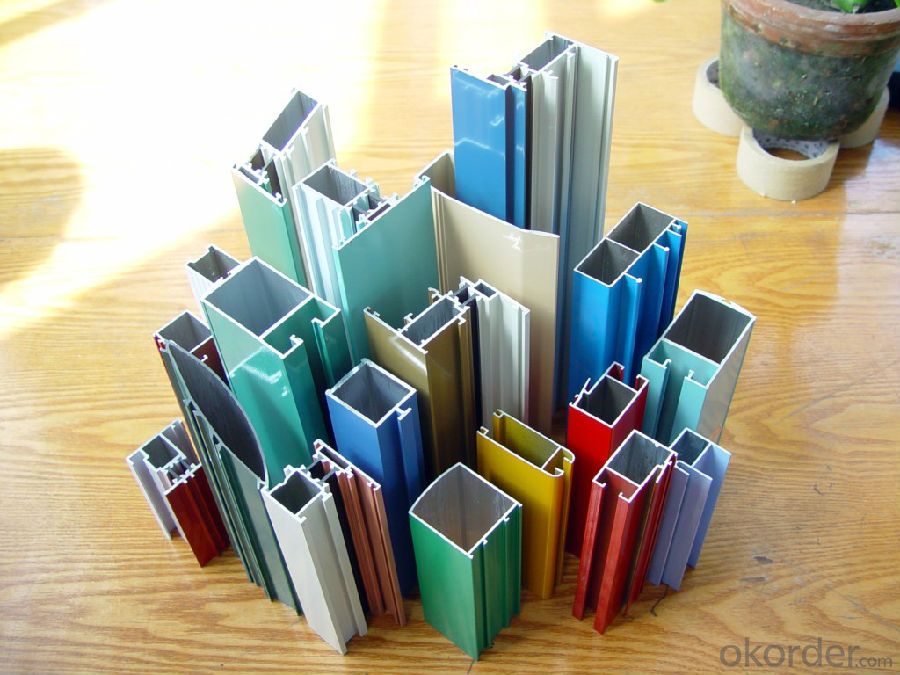
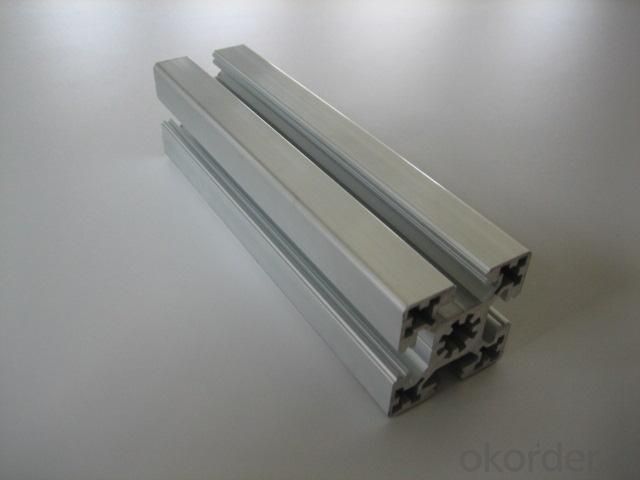
4.Customized Aluminum Profile for Closet Door Specification:
1. Material: 6063,6061,6060,6005,6005A,etc.
2. Temper: T5 or T6
3. Finish: Mill finish, anodizing, powder coating, electrophoresis, wooden transfer or pvdf/carbon-flouride coated, polishing, brushing, sand blasting
4. Various colors: Silver, bronze, black, gold, blue, grey, champagne, bright, etc.
5. Machining: Cutting, punching, drilling, tapping, milling, bending, welding, CNC etc.
5.FAQ:
①How about your company?
A world class manufacturer & supplier of castings forging in carbon steel and alloy steel,is one of the large-scale professional investment casting production bases in China, consisting of both casting foundry forging and machining factory. Annually more than 8000 tons Precision casting and forging parts are exported to markets in Europe, America and Japan. OEM casting and forging service available according to customer’s requirements.
②How to guarantee the quality of the products?
We have established the international advanced quality management system,every link from raw material to final product we have strict quality test;We resolutely put an end to unqualified products flowing into the market. At the same time, we will provide necessary follow-up service assurance.
- Q: This question asks about potential health hazards associated with the use of aluminum coils.
- <p>There are concerns regarding the use of aluminum coils, particularly in cooking and food preparation, due to the potential for aluminum to leach into food. While aluminum is generally recognized as safe, excessive intake over a long period has been linked to various health issues, including neurological disorders and cognitive impairment. However, the risk is considered low for most people, as the body does not absorb a significant amount of aluminum from food or cookware. It's important to note that the scientific community has not reached a consensus on the extent of these risks, and further research is needed. To minimize potential exposure, it's recommended to use alternative cookware materials like stainless steel or cast iron, especially for acidic foods that may increase aluminum leaching.</p>
- Q: How do aluminum coils contribute to sustainable packaging?
- Aluminum coils play a significant role in promoting sustainable packaging practices. Firstly, aluminum is an infinitely recyclable material, meaning it can be recycled repeatedly without losing its properties or quality. This feature enhances the sustainability of packaging as it reduces the need for extracting and processing virgin materials, thereby conserving natural resources and minimizing the environmental impact associated with mining and production. Moreover, aluminum coils offer exceptional barrier properties, effectively protecting the packaged goods from external factors such as moisture, light, and oxygen. This barrier function helps to extend the shelf life of products, reducing food waste and preventing the need for additional packaging or preservatives. By keeping products fresh for longer periods, aluminum coils contribute to sustainable packaging by supporting efforts to combat food loss and promote resource efficiency. Furthermore, aluminum is lightweight, making it an ideal material for packaging. Its low weight allows for reduced transportation costs and energy consumption during shipping, contributing to overall carbon emissions reduction. The lightweight nature of aluminum coils also makes them convenient for end consumers, reducing the environmental impact associated with disposal and recycling. Additionally, aluminum is highly durable and resistant to corrosion, ensuring the integrity of the packaging throughout its lifecycle. This durability means that aluminum coils can be reused or repurposed, further reducing waste and extending the material's lifespan. In summary, the use of aluminum coils in packaging promotes sustainability in multiple ways. It contributes to a circular economy by being infinitely recyclable, reduces food waste through effective barrier properties, lowers carbon emissions through lightweight design, and encourages reuse and repurposing due to its durability. By incorporating aluminum coils into packaging solutions, we can make significant strides towards achieving a more sustainable and environmentally friendly packaging industry.
- Q: What are the bending and forming capabilities of aluminum coils?
- Aluminum coils have excellent bending and forming capabilities due to their inherent flexibility and malleability. They can be easily bent, shaped, and formed into various complex shapes and designs without losing their structural integrity. This makes them highly versatile and suitable for a wide range of applications in industries such as construction, automotive, aerospace, and manufacturing.
- Q: This question asks for the current prices of aluminum coil in various regions around the world.
- <p>The price of aluminum coil can vary significantly based on factors such as market demand, supply, transportation costs, and regional economic conditions. Prices are typically quoted per metric ton and are influenced by the London Metal Exchange (LME) and regional metal exchanges. For the most accurate and up-to-date prices, it's best to consult with local metal suppliers or check online commodity trading platforms. Prices can change daily, so real-time data is essential for making informed decisions.</p>
- Q: What are the legal frameworks or regulations that control the manufacturing and distribution of aluminum coil?
- <p>Yes, there are regulations and laws governing the production and sale of aluminum coil. These often include environmental protection laws that regulate emissions and waste disposal, safety standards for manufacturing processes, and quality control regulations to ensure the product meets certain specifications. Additionally, trade laws and tariffs may affect the sale of aluminum coil, especially when it crosses international borders. Compliance with these regulations is crucial to avoid penalties and maintain a competitive edge in the market.</p>
- Q: How are aluminum coils inspected for defects?
- Aluminum coils are inspected for defects through various methods such as visual inspection, ultrasonic testing, eddy current testing, and X-ray inspection. These techniques help identify surface imperfections, cracks, porosity, and other defects that may affect the quality and integrity of the coils.
- Q: How do aluminum coils contribute to energy-efficient HVAC systems?
- The role of aluminum coils in making HVAC systems energy-efficient is crucial. Firstly, aluminum is an exceptional heat conductor, enabling efficient heat transfer between different areas. In HVAC systems, aluminum coils are utilized in the condenser and evaporator units to facilitate the heat exchange process. In the condenser unit, the hot refrigerant vapor from the compressor passes through the aluminum coils. Due to the coils' high thermal conductivity, the heat is rapidly dissipated to the surrounding air, allowing the refrigerant to condense and release the heat energy. This effective heat transfer enhances the cooling performance of the HVAC system. Similarly, in the evaporator unit, the aluminum coils are responsible for absorbing heat from the indoor air. The cold refrigerant inside the coils absorbs the heat, resulting in the air cooling down. Ultimately, the cooled air is circulated back into the room. The superior thermal conductivity of aluminum enables quick heat absorption, improving the overall cooling efficiency of the HVAC system. Moreover, aluminum coils offer an energy-saving advantage by being lightweight. Compared to traditional copper coils, aluminum coils reduce the overall weight of the HVAC system. This weight reduction leads to lower energy consumption by the system's fan and compressor, as they require less effort to move the air and refrigerant throughout the system. Additionally, aluminum coils are highly resistant to corrosion, which prolongs the lifespan of the HVAC system. Corrosion can hinder heat transfer efficiency and result in refrigerant leaks, causing the system to consume more energy. By utilizing aluminum coils, the risk of corrosion is minimized, ensuring long-term energy efficiency. In conclusion, aluminum coils enhance the energy efficiency of HVAC systems by improving heat transfer efficiency, reducing overall system weight, and providing corrosion resistance. These factors collectively contribute to the effective operation of HVAC systems, consuming less energy while maintaining optimal indoor comfort.
- Q: How much is one ton of aluminum coil?
- The price of aluminum sheet is calculated according to the price of aluminum ingot + processing fee (aluminum plate state), and the specific price is also different according to the size and size of aluminum sheet.If you have any questions, please ask. I hope to help you.
- Q: What are the different protective film options for aluminum coils?
- Some different protective film options for aluminum coils include polyethylene films, polyvinyl chloride (PVC) films, and polypropylene films. These films are designed to provide temporary protection during transportation, handling, and storage, preventing scratches, abrasions, and other damages. The choice of protective film depends on factors such as the specific application, environmental conditions, and desired level of protection.
- Q: Can aluminum coils be used in the manufacturing of furniture?
- Yes, aluminum coils can be used in the manufacturing of furniture. Aluminum is a versatile and lightweight material that is often used in the construction of modern furniture. It offers durability, resistance to corrosion, and can be easily molded into various shapes and designs. Additionally, aluminum coils can be coated or finished in different colors and textures to enhance the aesthetic appeal of the furniture.
Send your message to us
Coiled Aluminum Sheet for Customized Closet Door Profiles
- Loading Port:
- Shanghai
- Payment Terms:
- TT OR LC
- Min Order Qty:
- 20 m.t.
- Supply Capability:
- 2000 m.t./month
OKorder Service Pledge
OKorder Financial Service
Similar products
Hot products
Hot Searches
Related keywords
